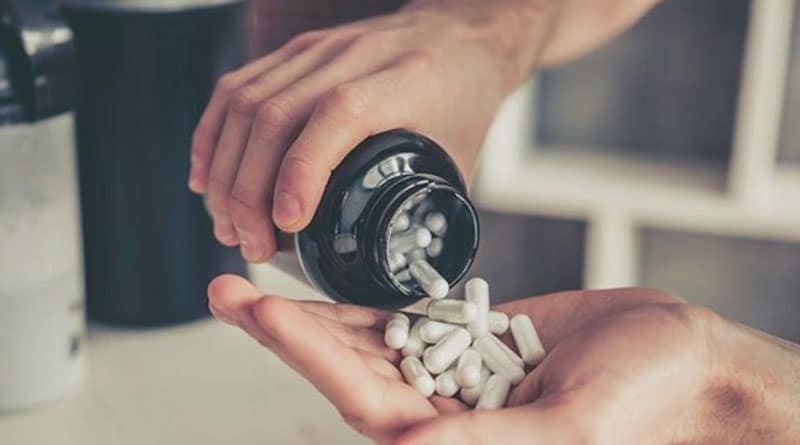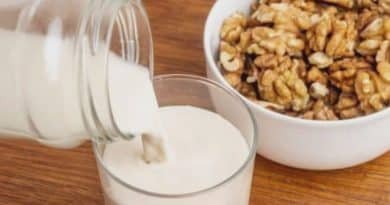Best Time to Take Creatine for Muscle Gain
If you’re interested in fitness and muscle building, you’ve likely heard about creatine. A well-known supplement celebrated for boosting muscle growth and enhancing athletic performance. A frequent inquiry is, “What is the best time to take creatine for muscle gain?”
This comprehensive guide will delve into the best timing, advantages, possible downsides, and all the essential information you need to enhance muscle-building efforts.
Creatine has become a staple in the supplement routines of athletes and bodybuilders alike. While most people understand its benefits, the timing of when to take creatine remains a hot topic.
In this article will dissect the science behind creatine supplementation and uncover the best time to take creatine for muscle gain.
Best Time to Take Creatine for Muscle Gain to Enhance Growth
Morning Supplementation: Taking creatine in the morning can be convenient for those with busy schedules. It helps you remember your dosage while kickstarting the day with a nutritious boost. Incorporating it into your morning routine helps establish a consistent habit that supports your fitness goals.
Pre-Workout Supplementation: Consuming creatine before workout can provide an immediate energy boost and help improve workout performance. Mixing it with pre-workout shake is common among athletes, as it enhances endurance and strength during intense training sessions.
Post-Workout Supplementation: Post-workout is often considered the best time to take creatine for muscle gain. During this window, muscles are primed for nutrient uptake, making creatine more effective in promoting recovery and growth. Timing can help replenish ATP stores depleted during exercise, aiding in faster muscle repair.
Before Bed: Some people prefer taking creatine before bed, especially after a late workout. This can aid in overnight muscle recovery and growth. Taking creatine at night ensures that your muscles receive a steady supply of the compound while you sleep, supporting continuous muscle repair and development.
Split Doses: Dividing daily creatine intake into smaller doses can help maintain steady muscle levels. This approach can be beneficial during the loading phase, where the goal is to saturate your muscle stores with creatine. By spreading out the doses, minimize the risk of gastrointestinal discomfort and optimize absorption.

Benefits of Creatine for Muscle Gain
Increased Muscle Mass: Creatine draws water into muscle cells, promoting protein synthesis and muscle growth. Hydration effect swells the muscle fibers and provides a more conducive environment for new muscle tissue to form.
Enhanced Strength: It improves power output, allowing for heavier lifts. By increasing the availability of ATP, the primary energy carrier in cells, creatine enables muscles to perform extra work in a shorter period, leading to significant strength gains.
Improved Exercise Performance: Creatine boosts overall athletic performance, enabling longer and intense workout sessions. Whether it’s sprinting, weightlifting, or high-intensity interval training, creatine helps delay fatigue, allowing athletes to push their limits and achieve better results.

Scientific Perspective on Timing
Pre-Workout vs. Post-Workout: Debate around the best time to take creatine for muscle gain often centers on whether to take it before or after a workout. Research suggests that both timings can be effective, but post-workout supplementation may have slight advantages.
Study Insights: A study published in the Journal of the International Society of Sports Nutrition found that participants who took creatine post-workout experienced slightly greater muscle mass and strength gains than those who took it pre-workout. Enhanced nutrient absorption during the recovery phase after exercise is believed to be the cause. During this period, the body is more receptive to absorbing nutrients, which can help replenish energy stores and promote muscle repair and growth.
Daily Consistency: Consistency is key, no matter when you take it! Taking creatine every day helps keep your muscle levels up, which is important for seeing those long-term benefits. Consistent supplementation ensures that your muscles are constantly saturated with creatine, providing a steady energy supply for high-intensity workouts and aiding in quicker recovery. To maximize its effectiveness over time, it’s essential to integrate creatine into daily routine, whether mixed into a post-workout shake or taken with a meal.

Loading Phase vs. Maintenance Phase
Loading Phase: Loading phase involves taking a higher dose of creatine, typically around 20 grams per day, divided into four doses for the first 5-7 days. This intake method accelerates creatine saturation in muscles, resulting in quicker and more significant gains in performance and recovery. During this phase, staying well-hydrated is essential, as creatine can increase water retention in your muscles.
Maintenance Phase: After completing the loading phase, switching to a maintenance dose of 3-5 grams per day is recommended. Lower dosage helps maintain the elevated creatine levels in your muscles, allowing you to sustain the benefits achieved during the loading phase. During this period to ensure muscles remain saturated and continue to perform at an optimal level.
Is Loading Necessary: While the loading phase can accelerate muscle saturation, it’s not strictly essential. You can start with a maintenance dose from the beginning, although it may take a few weeks to reach full muscle saturation and experience the full benefits. The decision to load or not can depend on personal preferences, goals, and how quickly you want to see results.
How to Take Creatine for Maximum Effectiveness
Mixing Creatine: Creatine can be mixed with water, juice, or favorite pre-workout or post-workout shake. For better solubility, using a warm liquid can help it dissolve easily. Ensuring the creatine is thoroughly mixed is essential to avoid any gritty texture.
Combining with Carbohydrates: Taking creatine with carbohydrates can significantly enhance its uptake into muscle cells. Carbohydrates trigger an insulin response, which helps transport creatine more efficiently. Including a piece of fruit, a glass of juice, or a carbohydrate-rich meal like oatmeal or rice alongside your creatine can be highly beneficial.
Hydration: Creatine draws water into muscle cells, increasing the need for hydration. Maintaining proper hydration is essential for meeting the increased water demands and maximizing the benefits of creatine supplementation. Ensure you drink plenty of water throughout the day, especially during and after workouts, to keep your body functioning at its best and prevent dehydration.
Potential Side Effects to Take Creatine Supplement
Bloating: Some people experience bloating during the initial stages of creatine supplementation. It can be mitigated by splitting the dose into smaller amounts throughout the day. Staying well-hydrated and gradually increasing the dosage can help reduce the likelihood of bloating.
Digestive Issues: Taking creatine on an empty stomach can sometimes cause digestive discomfort, such as cramping or nausea. Mixing it with a meal or a shake can help alleviate this issue. Starting with a lower dose and slowly increasing it can give your digestive system time to adapt.
Kidney Concerns: While creatine is generally safe for most people, those with pre-existing kidney conditions should consult a healthcare provider before supplementation. If you have any concerns, it’s important to monitor kidney function through regular check-ups. Ensuring a balanced diet and adequate fluid intake can support kidney health using creatine.
Personal Experience: My Journey with Creatine Timing
Trial and Error: I experimented with different timings to find what worked best when I first started using creatine. I initially took it pre-workout but noticed better results when switching to post-workout supplementation. By trying various approaches, I could observe the effects on my energy levels and recovery times, which helped me optimize my routine.
Finding the Sweet Spot: The best time to take creatine for muscle gain was immediately after my workout, mixed with a protein shake. This routine helped me recover faster and see noticeable muscle growth over time. The combination of creatine and protein gave my muscles the necessary nutrients to repair and grow efficiently, allowing me to push harder in subsequent workouts and gradually increase my strength and endurance.
Final Verdict
So, what is the best time to take creatine for muscle gain? While individual preferences and schedules vary, research suggests that post-workout supplementation offers slight advantages in muscle mass and strength gains. Your muscles are added receptive to nutrients after a workout, and creatine can help replenish energy stores more effectively.
The most important factor is consistency. Taking creatine daily and staying well-hydrated can maximize its benefits and support your muscle-building goals. Combining creatine with other post-workout nutrients, like protein and carbohydrates, further enhances recovery and muscle growth.
FAQs: Best Time to Take Creatine for Muscle Gain
Can I take creatine on rest days?
Taking creatine on rest days helps maintain elevated muscle levels, ensuring consistent benefits.
Is it better to take creatine with water or juice?
Both are effective, but taking creatine with juice can enhance its uptake due to the carbohydrates present in the juice.
Does creatine cause weight gain?
Creatine can cause an initial increase in water weight as it draws water into muscle cells. This is typically temporary and can be beneficial for muscle growth.
Does creatine take time to show results?
Results can vary, but most people start to see improvements in muscle strength and size within 2-4 weeks of consistent use.
Can I take creatine with other supplements?
Yes, creatine can be safely combined with supplements like protein powder, BCAAs, and pre-workout formulas.
What happens if I miss a dose of creatine?
Missing an occasional dose won’t significantly impact your progress but aim to take it consistently for the best results.
When is the best time to take creatine?
For optimal creatine effectiveness, take it post-workout, stay consistent, and stay hydrated. Experiment to find what works best for you and consult a healthcare professional before starting any supplement.
What does creatine do for men?
Creatine can help increase muscle mass, improve strength and power, and enhance athletic performance in men. It can also aid in post-workout recovery and may offer cognitive benefits.
What does creatine do for women?
Creatine can support muscle growth, strength gains, improved performance, and faster recovery in women. It may also have positive effects on bone health and brain function.
Is it safe to take creatine long-term?
Research shows creatine is safe for up to 5 years but consult a healthcare provider. Proper use can enhance muscle mass and performance. Maintain consistency, pay attention to your body’s signals, and consult with professionals for guidance.




